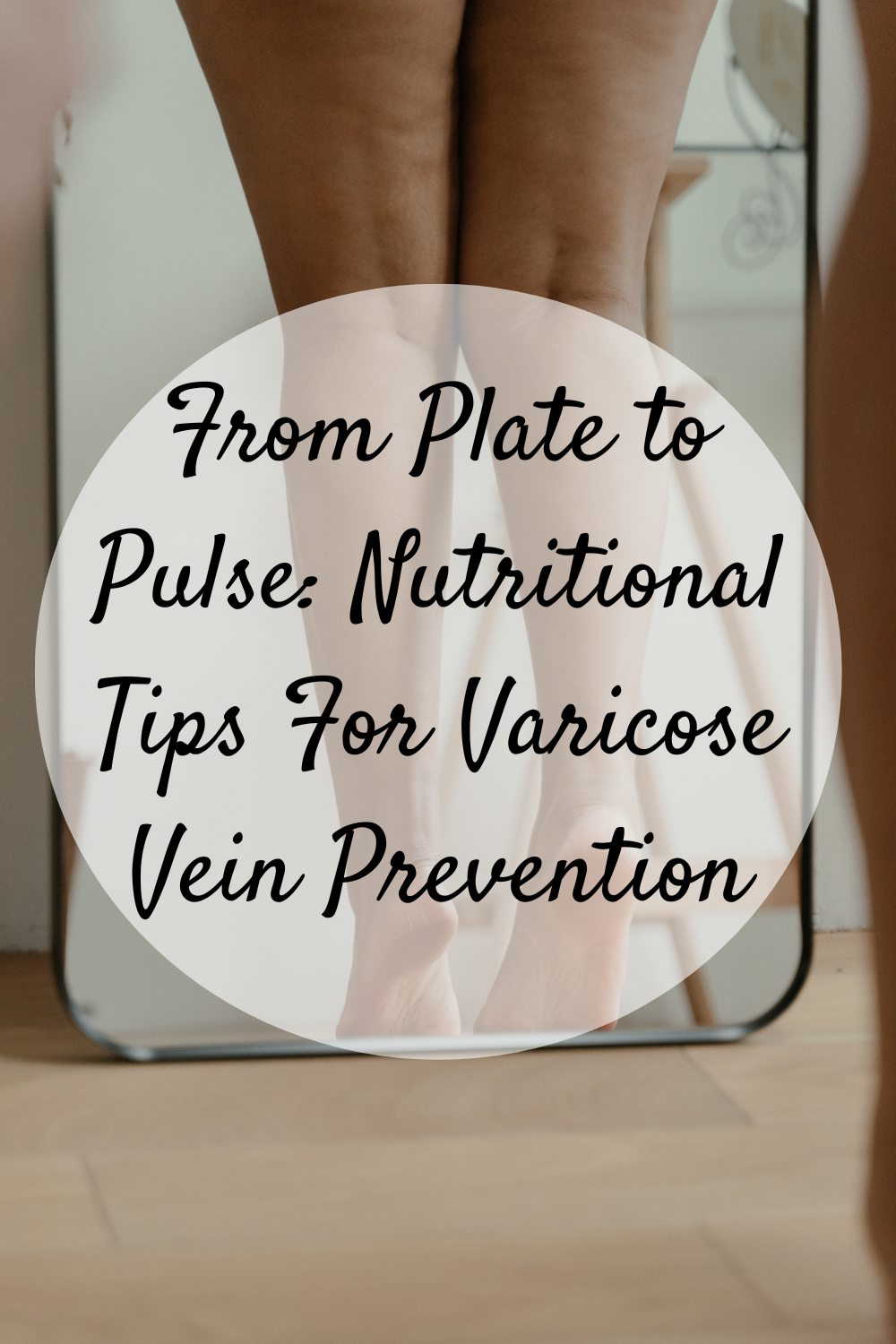

Varicose veins are a condition that affects millions of people worldwide. These veins, which become enlarged and twisted, look unattractive. They also cause discomfort, such as pain, swelling, and a heavy feeling in the legs. While there are treatments for varicose veins, prevention is always preferable. One aspect of prevention that often goes overlooked is maintaining a diet. In this blog, we will explore how making small changes to your diet can impact your veins’ health.
Believe it or not, it’s important to know that diet and exercise help varicose veins. Maintaining a nutritious diet plays a huge role in our overall health, including the health of our veins. Consuming foods that are rich in vitamins and minerals helps promote blood circulation and strengthen blood vessels. Incorporating nutrients into your meals can reduce the risk of developing varicose veins or alleviate existing symptoms.
Fiber is a nutrient for maintaining blood flow through both arteries and veins. Including fiber foods such as grains, legumes, fruits, and vegetables helps prevent constipation and supports regular bowel movements. Exerting force during bowel movements can place a burden on the veins in the lower body, increasing the chances of developing varicose veins. Therefore, for healthy meals, incorporate fiber into your diet.
Antioxidants are substances that shield our cells from harm caused by radicals. Consuming antioxidants regularly can support the functioning of blood vessels by reducing stress. Berries, leafy greens like spinach and kale, and citrus fruits like oranges, grapefruits, and green tea all contain ample amounts of antioxidants that contribute to vein health.
Inflammation significantly contributes to conditions, including varicose veins. Introducing omega-3 acids into your diet through sources like fish such as salmon and mackerel, chia seeds, and flaxseeds can help alleviate inflammation within blood vessels. These foods promote heart health and assist in maintaining optimal vein function.
Vitamin C is a nutrient that aids in collagen production – a protein providing strength and elasticity to our blood vessels. Including foods in vitamin C, such as fruits, strawberries, bell peppers, broccoli, and kiwi, can fortify the walls of your blood vessels and prevent weakening or dilation.
Bioflavonoids are compounds found in plants that can help strengthen the walls of capillaries. Including foods in your diet, like fruits ( the white part of the peel called pith), berries, onions, apples, and dark leafy greens, provides your body with these beneficial bioflavonoids. They can contribute to reducing swelling and alleviating pain associated with veins.
Hydration is essential for the health of your veins. When your body lacks hydration, the viscosity of your blood increases, making it more challenging for blood to flow through your veins and placing strain on them. Drinking water throughout the day is important to keep your body hydrated and ensure optimal vein function. Additionally, incorporating hydrating foods like cucumbers, watermelon, and citrus fruits into your diet can provide a boost of hydration.
Consuming amounts of sodium can result in retention and swelling in various parts of the body, including the legs and ankles. This can worsen symptoms related to varicose veins. Add pressure on already weakened vessels.
To decrease sodium intake, it is advisable to avoid processed and packaged foods that tend to have salt content. Instead, choose foods that you can prepare at home with minimal added salt. Also, consider using herbs and spices as alternatives to enhance the taste without relying on excessive salt.
In conclusion, by adding these points to our discussion on tips for preventing varicose veins, we have covered various aspects that contribute to overall vein health. This includes consuming fiber foods for digestion, incorporating antioxidant-rich foods to protect blood vessels from damage caused by free radicals, including omega-3 fatty acids to reduce inflammation, ensuring sufficient intake of vitamin C for strengthening blood vessel walls, incorporating bioflavonoids to improve capillary strength, maintaining hydration throughout the day and reducing excessive sodium intake. All these factors collectively support health.
Remember that nutrition alone cannot fully prevent or cure varicose veins if they have already developed significantly. It is important to seek advice from a healthcare professional. By incorporating these suggestions into your eating habits and making adjustments to your diet, you can promote optimal blood flow, fortify your blood vessels, and potentially lower the chances or intensity of developing varicose veins. Let’s appreciate the influence of nutrition as we navigate from our meals to our bloodstream in our quest for veins.
A recent analysis by John Foy & Associates reveals a troubling trend in traffic fatalities…
Artificial intelligence (AI) technology has been praised by many for its ability to improve efficiency,…
SPLAT. Andrew’s knee struck the jagged mountain path. Blood—warm and red—spilled down his leg, weaving…
Selling car with finance needs throughout. Unfortunately, ignoring legal steps leads to problems later. Therefore,…
Capricornx has confirmed that its proprietary strategy engine sustained a verified win rate of 92.4%…
Verizon Customer Service 1-833-783-3017: How to Get Fast & Reliable Support When it comes to…
This website uses cookies.